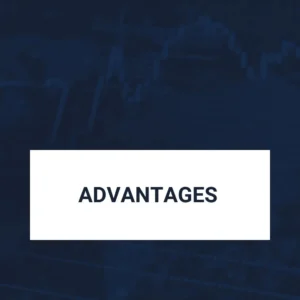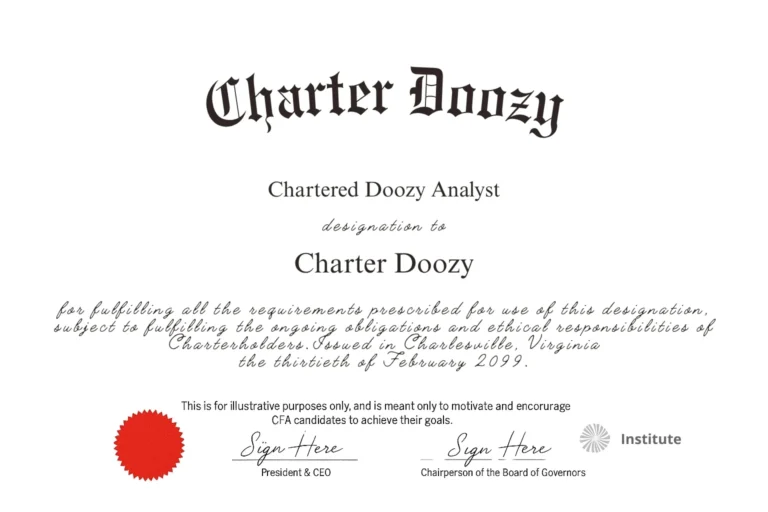Choosing a CFA career path can feel overwhelming. There are many directions you can take, and each comes with its own expectations, rewards, and challenges.
This article is part of a series designed to help you understand the most common CFA career paths. We’ll start with portfolio management – one of the most well-known and widely pursued roles among CFA candidates.
If you’re interested in managing investments, analyzing markets, and making real financial decisions that impact clients or institutions, portfolio management may be the right path for you.
Let’s take a closer look at what this career involves, how to break in, and whether it matches your strengths and ambitions.

What Is Portfolio Management?
Portfolio management is the process of making investment decisions on behalf of individuals, institutions, or funds.
It involves selecting and managing a mix of assets (such as stocks, bonds, and alternative investments) with the goal of achieving a specific financial objective.
The portfolio manager is responsible for balancing risk and return, staying within the constraints of a mandate, and responding to market conditions.
This could mean repositioning a portfolio during volatile markets, analyzing economic trends, or adjusting exposure to different asset classes.
Portfolio management requires a combination of analytical skill, discipline, and judgement.
It is both data-driven and forward-looking.
Success depends not only on financial knowledge but also on the ability to make decisions under pressure and stay aligned with the client’s long-term goals.
This role can be found across different types of firms and structures, from large asset managers and pension funds to boutique investment firms and hedge funds.
Some portfolio managers operate independently, while others work as part of a team of analysts and strategists.

Core Responsibilities
Managing Client Portfolios
At its heart, portfolio management is about overseeing investments on behalf of clients.
Whether individuals, institutions, or funds.
Portfolio managers are responsible for creating and executing investment strategies aligned with client goals, risk tolerance, and time horizon.
They ensure portfolios are properly diversified and rebalanced as markets shift.
Asset Allocation and Strategy
A key responsibility is deciding how to allocate capital across asset classes like equities, fixed income, cash, or alternatives.
This involves analyzing macroeconomic trends, forecasting market movements, and tailoring strategies to meet specific mandates – such as capital preservation, income generation, or aggressive growth.
Security Selection
Once asset allocation is set, portfolio managers choose specific investments.
This may include selecting individual stocks, bonds, ETFs, or mutual funds.
They rely on a blend of quantitative analysis, fundamental research, and qualitative judgment to identify opportunities and avoid risks.
Performance Monitoring and Reporting
Managers track performance against benchmarks and objectives. They review returns, analyze attribution, and adjust strategy when necessary.
Transparent reporting and clear communication with clients or stakeholders are vital, especially during periods of volatility or underperformance.
Risk Management
Risk control is central to portfolio management.
Managers assess exposure across sectors, geographies, and asset classes.
They implement hedging strategies, monitor correlation, and use tools like Value at Risk (VaR) or stress testing to ensure the portfolio stays within defined risk parameters.
Compliance and Ethics
Portfolio managers must adhere to regulatory requirements and client investment guidelines.
They operate within a strict fiduciary framework and are held to high ethical standards – making the CFA Charter particularly valuable in reinforcing professional integrity.
Doozy Digest
A newsletter for CFA candidates
Subscribe for:
✔ Insightful tips
✔ Expert advice
✔ Career motivation
✔ Exam inspiration
Stay updated and subscribe today!

Why CFA Candidates Are a Good Fit
Portfolio management is one of the core focus areas of the CFA Program, particularly at Level III.
The exam curriculum is designed to prepare candidates for roles where investment decision-making, asset allocation, and risk management are central.
At Level I and II, candidates develop technical fluency in financial analysis, valuation methods, economics, and quantitative methods.
These skills form the analytical foundation needed to evaluate individual securities and understand market dynamics.
Level III shifts the focus to portfolio management and wealth planning.
This includes portfolio construction, performance evaluation, and strategies for institutional and private clients.
Candidates learn how to build portfolios that meet specific objectives and constraints, how to manage across different asset classes, and how to navigate real-world complexities such as tax implications, liquidity needs, and investment policy guidelines.
Ethics, which is embedded throughout all three levels, reinforces the fiduciary mindset that’s essential in this profession.
Portfolio managers must act in the best interest of their clients, manage conflicts of interest, and communicate with clarity and integrity.
The CFA designation is widely respected in the asset management industry.
Employers view it as a mark of competence, discipline, and professionalism.
For candidates looking to break into or advance in portfolio management, it sends a strong signal that they are serious about the field – and well prepared to add value.

Skills and Traits That Help You Succeed
Portfolio management requires technical knowledge.
It also demands a blend of analytical ability, sound judgment, and steady temperament.
Success in this field depends on your ability to process information, make decisions under uncertainty, and stay focused on long-term goals.
Analytical thinking
Portfolio managers must evaluate securities, assess economic trends, and interpret financial data.
Strong analytical skills help you identify opportunities and avoid unnecessary risks.
Risk awareness
Understanding risk is central to the job.
You need to manage downside exposure, monitor volatility, and construct portfolios that align with client objectives and tolerance for risk.
Decision-making under pressure
Markets move fast.
Portfolio managers must be able to make high-stakes decisions with incomplete information.
Confidence and discipline are key.
Communication skills
Whether you’re presenting a strategy to clients or discussing trade ideas with colleagues, you need to explain complex ideas clearly and persuasively.
Curiosity and continuous learning
Markets evolve.
New products emerge.
Successful managers stay current, adapt their thinking, and refine their investment process over time.
Emotional discipline
Overreaction leads to poor performance.
The ability to stay calm during drawdowns or market stress is essential to maintaining a long-term strategy.
Technological fluency
While not always required, comfort with tools like Excel, Bloomberg, or programming languages (Python, R) can be a plus- especially in quantitative roles or firms that rely on data-driven strategies.
Portfolio management rewards those who combine rigorous thinking with strong instincts and emotional control.
It’s a role where both skill and character matter.

Typical Career Progression
Portfolio management is rarely a starting point.
Most professionals work their way up by gaining experience in research, analysis, or trading roles.
Advancement tends to be structured, though timing can vary depending on performance, firm size, and market conditions.
Entry-Level Roles
Most portfolio managers begin their careers as analysts.
These roles focus on gathering data, modeling investment ideas, and supporting senior team members.
Common titles include:
Investment Analyst
Research Associate
Junior Portfolio Analyst
Quantitative Analyst
At this stage, the focus is on developing technical skills, understanding market mechanics, and learning how investment decisions are made.
Mid-Career Roles
With a few years of experience, analysts often move into more autonomous roles where they can take on responsibility for a sector, strategy, or asset class.
Typical titles include:
Assistant Portfolio Manager
Sector Specialist
Associate Portfolio Manager
Investment Strategist
These roles involve more direct input into portfolio decisions, increased client interaction, and sometimes partial discretion over investment allocations.
Senior Roles
At the senior level, professionals manage full portfolios, lead teams, and make high-level decisions for clients or funds.
Common roles include:
Portfolio Manager
Head of Investments
Chief Investment Officer (CIO)
Partner or Managing Director
In these roles, performance, leadership, and trust are key.
Many senior managers also take on business development or firm-wide responsibilities, especially in smaller or boutique firms.

Where You’ll Work
Portfolio managers work across a wide range of financial institutions.
While the nature of the job is similar, the environment, scale, and investment philosophy can vary significantly depending on the firm.
Asset management firms
These are the most common employers.
Large firms like BlackRock, Fidelity, or Vanguard manage mutual funds, ETFs, and institutional accounts.
Roles here are structured, with clear hierarchies and specialized teams.
Pension funds and endowments
Institutional investors such as pension funds, sovereign wealth funds, and university endowments manage large, long-term portfolios.
The work is often strategic and focused on risk-adjusted returns over decades.
Hedge funds
Hedge funds offer a faster-paced, performance-driven environment.
Strategies are more aggressive, and the pressure to generate alpha is high.
Success can be highly rewarding, but competition is intense.
Family offices and private banks
Portfolio managers in these settings serve high-net-worth individuals and families.
The work often blends investment management with wealth planning and customized service.
Boutiques and independent firms
Smaller asset managers may offer more flexibility and faster career progression.
These firms tend to value specialization and may give portfolio managers broader responsibilities earlier in their careers.
Geography
Major financial hubs such as New York, London, Hong Kong, and Singapore dominate the industry, but portfolio management roles are increasingly available in regional markets and emerging financial centers.
Your work setting will shape your experience – whether it’s managing institutional mandates at scale or tailoring strategies for individual clients.

Compensation and Lifestyle
Portfolio management offers competitive compensation, especially as you move into more senior roles.
Earnings are typically a mix of base salary, performance-based bonuses, and in some cases, profit-sharing or equity.
Base salary
Entry-level analysts in asset management can expect to earn between $70,000 and $100,000 per year.
As you move into mid-level or assistant portfolio manager roles, salaries often range from $100,000 to $150,000.
Senior portfolio managers or team leads can earn $200,000 and up, with top performers in hedge funds or private firms exceeding $500,000.
Bonuses and performance incentives
Bonuses are a significant part of compensation, especially in firms where performance directly affects revenue.
In hedge funds or high-fee structures, bonuses can exceed base salary.
In more traditional settings, bonuses are smaller but still meaningful.
Lifestyle and work-life balance
Compared to investment banking or trading, portfolio management tends to offer a more balanced lifestyle.
Hours are usually consistent with market hours, though the intensity can rise during earnings season, major events, or periods of volatility.
Client-facing roles or leadership positions may require travel, presentations, or off-hours communication.
Hedge fund roles often involve longer hours and higher pressure.
In general, portfolio management allows for a long and sustainable career, with the ability to grow professionally without sacrificing balance – depending on the firm and role.

Advantages of This Career Path
Portfolio management is a highly regarded career path for CFA Charterholders – and for good reason. It combines intellectual challenge, meaningful responsibility, and long-term professional growth.
Direct impact on capital
Portfolio managers make real investment decisions that affect wealth creation for clients, institutions, and society at large.
The impact is measurable, and success can be deeply rewarding.
Strong compensation potential
While compensation varies by firm and region, experienced portfolio managers often earn well above industry averages.
Performance-based bonuses create significant upside.
Intellectually stimulating
No two days are the same.
Markets shift, strategies evolve, and new information constantly flows in.
This is a career that keeps you learning and thinking critically.
Long-term career sustainability
Portfolio management offers a long runway.
Many professionals remain in the field for decades, progressing from analyst to CIO or launching their own funds.
High respect within the finance industry
This is one of the most respected paths for CFA Charterholders. The role blends technical skill, judgment, and accountability in a way few other jobs do.

Drawbacks to Consider
While portfolio management can be rewarding, it’s important to understand the challenges that come with the role.
This path isn’t for everyone, and the pressure to perform can be significant.
Performance pressure
Your success is often measured in numbers.
Failing to meet benchmarks or client expectations can lead to reduced compensation, loss of responsibility, or in some cases, job loss.
Long ramp-up to decision-making
New professionals don’t immediately manage money.
It can take years of experience and trust-building before you’re given discretion over a portfolio.
Market stress
You’re accountable during bull and bear markets.
Managing through downturns, volatility, and uncertainty requires discipline and emotional control.
Repetitive tasks
Not every day is filled with strategic decision-making.
There are reports to write, compliance rules to follow, and portfolios to monitor.
The work can be routine at times.
High competition
The field attracts top talent.
Opportunities (especially in prestigious firms or high-performing funds) can be competitive and hard to access without the right network or track record.
Portfolio management offers long-term rewards, but it demands patience, resilience, and consistent performance.

How to Break In
Getting into portfolio management takes time, strategy, and persistence.
Most professionals begin in related roles that allow them to build experience, prove their capabilities, and earn trust.
Qualifications and certifications
The CFA charter is one of the most recognized credentials in portfolio management.
Many firms prefer or require it, particularly for roles involving investment decision-making.
A bachelor’s degree in finance, economics, or a quantitative field is typically expected.
Some professionals also hold MBAs, though it’s not essential.
Technical skills can also set you apart.
Proficiency in Excel, Bloomberg, Python, or portfolio analysis tools can give you an edge… especially in research-heavy or data-driven environments.
Entry strategies
Start with internships or entry-level analyst roles in asset management firms, pension funds, or investment consultancies.
These roles expose you to investment processes, research workflows, and portfolio construction from the ground up.
Rotational programs at large financial institutions are another way in.
They allow you to explore multiple functions – often including investment teams – before choosing a specialization.
Networking matters.
Attend CFA Society events, reach out to portfolio managers on LinkedIn, and stay connected with alumni or mentors in the field.
Many roles are filled through referrals and internal recommendations.
Breaking in takes time.
But if you’re consistent, curious, and committed to learning, the door will eventually open.

Resources and Next Steps
If you’re interested in portfolio management, there are many ways to deepen your understanding and prepare for the journey ahead.
Books
The Intelligent Investor by Benjamin Graham
Common Stocks and Uncommon Profits by Philip Fisher
Winning the Loser’s Game by Charles D. Ellis
Unconventional Success by David F. Swensen
These books cover investment philosophy, portfolio construction, and the mindset of successful investors.
Podcasts and media
Capital Allocators – Insights from leading asset managers
Animal Spirits – Market commentary with a behavioral lens
The Meb Faber Show – Discussions on global investing and asset allocation
Bloomberg and Morningstar – Daily market updates and manager interviews
Online courses and certifications
CFA Institute Learning Portal
Coursera and edX (courses on asset management, Excel modeling, Python for finance)
CAIA or FRM (for specialization in alternatives or risk)
Professional communities
Local CFA Society events and webinars
LinkedIn groups focused on asset management and investment careers
Conferences hosted by investment firms or research providers
These resources help you build knowledge, stay connected, and position yourself for opportunities in the field.
Take the CFA Career Path Discovery Quiz
Still deciding if investment banking is right for you?
The CFA Career Path Discovery Quiz is a quick, insight-driven tool that matches your personality, preferences, and strengths with eight finance career paths. Based on your answers, you’ll receive a breakdown of where you best fit—whether that’s investment banking, portfolio management, fintech, or something else entirely.
It’s a simple way to step back, reflect, and explore paths that align with your goals.
Final Thoughts
Portfolio management remains one of the most respected and rewarding paths for CFA candidates.
It offers a unique blend of strategy, analysis, and responsibility – and the chance to directly shape financial outcomes for individuals, institutions, or funds.
But it’s not a path you enter overnight. It takes time, preparation, and consistent performance.
The CFA Program gives you a strong foundation, but you also need to stay curious, build your network, and seize opportunities to learn from the market itself.
If you’re drawn to long-term thinking, enjoy solving complex problems, and want to build a lasting career in investments, portfolio management could be your best next step.



